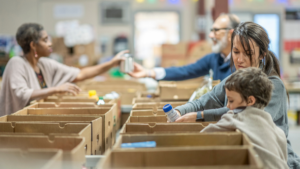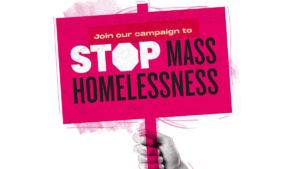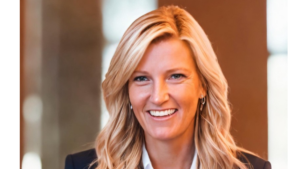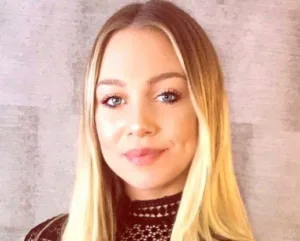By Eva Taylor, Corporate Social Responsibility Director, Hootsuite
“Refugees are often depicted through an outside lens in society,” says Robin Hammond, Founder of human rights non-profit Witness Change in a conversation with Hootsuite—the social media management platform. “At times they are depicted as threats to the land where they’ve settled, and in other instances, as victims. It’s not that simple.”
For the most part, refugees, asylum-seekers and migrants don’t get a say in how they are depicted in traditional media or on social media– if not portrayed as a threat, they can be seen as helpless victims, and they regularly become stereotypes, with a few stories meant to represent the experience of thousands.
A 2020 YouGov survey found that in the UK, the British public has little or no sympathy for asylum-seekers crossing the Channel from France. YouGov also found that 46% of Britons think that the UK has done “more than our fair share” to accommodate refugees.
The personal, complex perspectives of individuals and the diversity of their experiences are lost amongst wider political and social narratives. But there are organisations out there who are looking to change this narrative by putting the story back in the hands of those who are living the refugee experience—and there’s no better place to share these stories than on social media.
Using social media for good
Although social can sometimes be a source of negativity—recent racist abuse following England’s loss at the UEFA Euro 2020 sadly being one of many recent examples—social media can also drive good and serve as an accelerator for change in the world. UNICEF, for example, is using social media to connect thousands of refugees and migrants with free legal advice, and social media activism, or ‘clicktivism’, has brought global attention to causes like Black Lives Matter, TimesUp and #MeToo.
Witness Change, a non-profit organisation that specialises in amplifying the voices of marginalised groups and aims to end human rights violations for disenfranchised communities, has also taken to social media to make a positive impact by amplifying the voices of refugees. Partnering with Hootsuite–social media management experts and strong advocates for using social media for good–and leveraging the Hootsuite Enterprise platform, Witness Change launched the 1000 Dreams campaign, a photo-storytelling project of strength, struggle, and hope, authored by 40 refugee storytellers in Europe, with the goal of creating a global movement to change the narrative of the refugee experience.
In order to collect a goal of 1,000 stories, Witness Change is supporting refugee storytellers from diverse backgrounds with skills training, equipment, and mentorship to conduct interviews and photograph refugees. To date, nearly 700 refugees living in Europe have shared their stories of strength, challenges and dreams–from Cuban refugees living in Paris to Eritrean refugees in Ipswich.
From a social media perspective, Witness Change is leveraging the Hootsuite dashboard to plan and manage the campaign and is also utilising Hootsuite’s powerful social listening tools to help measure the impact of the project and resulting changes in sentiment. Hootsuite is also offering pro bono advice and support from its internal experts.
From a refugee’s perspective
Bnar Sardar is one of the refugee photojournalists whose story is featured in the 1000 Dreams campaign. Now based in Bristol, Bnar was born in Kurdistan and was forced to flee to Iran with her family in 1991 when she was seven years old.
Photography was an early passion for her and as a refugee, she noticed that only male photographers were documenting the conflict in her war-torn country. Looking to help change this unbalanced demographic, she decided to turn photography into a profession. In 2009 she began working with the first Iraqi photography agency, Metrography, and is currently a freelance photographer for National Media League. She was also recently selected by UNHCR as its Middle-East photojournalist.
“I have been a refugee twice over, and I want to help make a difference by giving people a voice so that they can tell their own powerful stories,” said Bnar. “Humanitarian crises are happening all over the world, and I am driven to connect with people, especially women and children, who are going through an unimaginable experience that is not often captured by the wider media. Listening to their stories, I do my best to document their lives and experiences with dignity. Being a refugee myself puts me, as the photographer, on the same level as my subjects, and they know I understand what they are going through. Being able to tell these stories is vital for me, and using social media to spread them far and wide is a key component of getting refugee voices heard.”
In today’s digital-driven world, social media can and should be used for good. For refugees, it is allowing them to tell their stories on their terms and enabling them to show the world diverse refugee experiences that are often missed by mainstream media. At a time when technology and social media are seen as major causes of human disconnection and negativity, the 1000 Dreams campaign is able to take the best parts of social media and provide the opportunity for even the smallest, most obscure voices to share their stories with a global audience.









